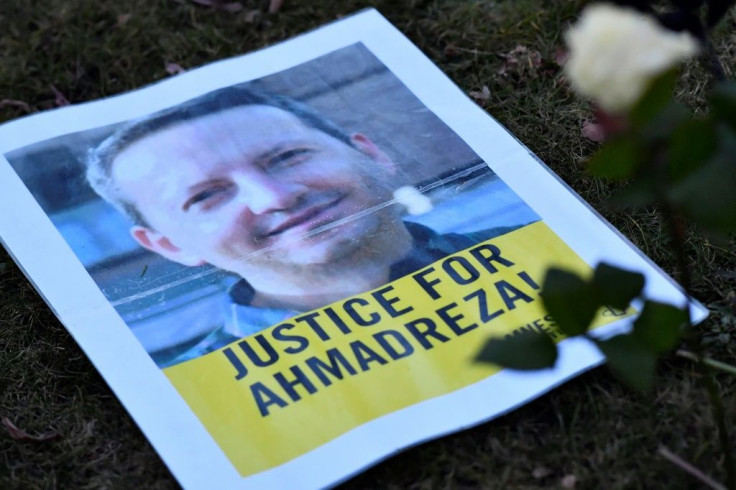Sweden Urges Iran To Call Off Execution Of Medical Researcher
Sweden's foreign minister Ann Linde said Tuesday she had spoken to her Iranian counterpart to formally object to the planned execution of an Iranian-Swedish professor sentenced to death on spying charges.
Linde, who announced the call on Twitter, said she had been in touch with Iranian foreign minister Mohammad Javad Zarif following reports that Iran was preparing to carry out the execution of Ahmadreza Djalali, a specialist in emergency medicine.
"Sweden denounces the death penalty and is working to not have the sentence against Djalali carried out," Linde wrote on Twitter.
Djalali, formerly based in Stockholm where he worked at the Karolinska Institute, a medical university, was arrested during a visit to Iran in April 2016.
He was subsequently found guilty of passing information about two Iranian nuclear scientists to Israel's Mossad intelligence agency that led to their assassinations.
While imprisoned he was granted Swedish citizenship in February 2018, only months after his death sentence was confirmed by Iran's Supreme Court.

Djalali has claimed he is being punished for refusing to spy for Iran while working in Europe.
His lawyers also claimed they were blocked from presenting submissions ahead of the Supreme Court hearing.
The imprisoned academic's wife told news agency TT on Tuesday that her husband had informed her that he was being moved to another prison where he would await his sentence in isolation, indicating an execution was imminent.
Barbro Elm, a spokeswoman for Sweden's foreign ministry, told AFP they were aware of the reports of the "impending execution of the sentence".
"We are trying to clarify the reports and are continually raising the issue with representatives for Iranian authorities," Elm said.
Djalali's death sentence has been widely condemned by rights groups and by UN rights experts, with Amnesty International repeating its call for Djalali to be freed on Tuesday.
"We call on members of the international community to immediately intervene, including through their embassies in Tehran, to save Ahmadreza Djalali's life before it is too late," Diana Eltahawy, Amnesty's Deputy Director for the Middle East and North Africa, said in a statement.
© Copyright AFP 2024. All rights reserved.





















